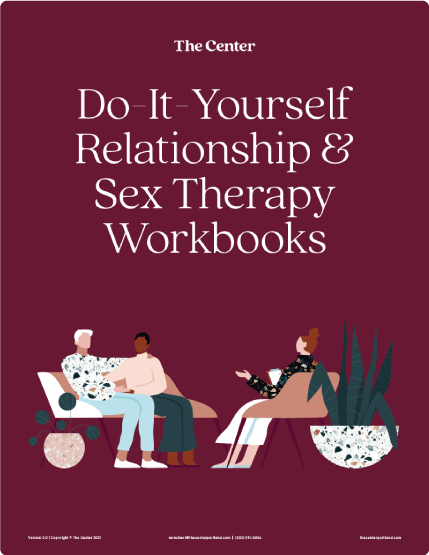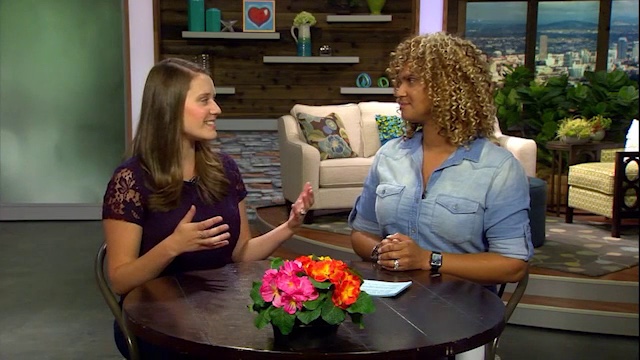3 Major Pitfalls to Avoid in Ethically Non-Monogamous Relationships
Are you feeling excited to begin exploring ethical non-monogamy but worried about how it will go? I’m so glad you’re seeking out guidance as you begin this experience. Today I will share major pitfalls to avoid as you open up your relationship. These are easy to fall into, but having the intention to do hard work to avoid them will set you up for more success as you navigate ethical non-monogamy.
1. Opening Up Your Relationship to Save It
When our relationships are struggling, it makes sense to look for solutions. And opening up your relationship can be fulfilling and enriching! But, when you open up your relationship in order to save it, you are likely avoiding existing problems. These problems will only be highlighted more when you’re engaging in non-monogamy. Before opening up your relationship, take a thorough relationship inventory. This means checking in with yourself and your partner around how your relationship is going in all areas and where work can be done to improve it. It is best to address the issues first, so that you have a solid foundation for exploring non-monogamy.
Here’s some things to include in a relationship inventory:
- How is our communication? Do I feel safe and comfortable communicating my emotions and needs? Are we getting stuck in conflict often?
- How do we divide labor, and how does it feel for both of us?
- What are our individual and relational goals for the future? How do our goals align or differ?
- How much time do we spend together? How does this feel for each of us?
- What are our relational values? How do they align or differ? (for more on relational values see our previous post “4 Important Things to Consider Before Opening Up Your Relationship”)
2. Creating Lots of Rules
When you’re new to ethical non-monogamy, you may want to create a lot of rules for you and your partner(s) to follow as you navigate this new experience. While boundaries and expectations are really important to discuss, rules can be a way to avoid deeper fears. Before you set a rule, ask yourself what deeper feeling the rule is protecting you from. You’re likely to identify some themes that you can work through. For example, maybe you’re setting rules to protect you from a fear of abandonment. Working through this fear with your partner or a therapist will result in far more comfort as you explore non-monogamy.
Because ethical non-monogamy will be a new experience for you, setting rules can also limit your ability to experience it fully. We never know what something is like until we are in it. It’s easy to set and agree to rules when you’re conceptualizing an experience, but when you’re actually experiencing it you may feel differently! For this reason, creating a lot of rules can create unrealistic standards, setting you up to fail before you begin. Rather, consider having flexibility and openness to consistently communicate.
Things to consider around rules:
- What am feeling fearful about? When I create a rule, what is the deeper emotion or fear that I am experiencing?
- How can we set an expectation of open communication as we explore non-monogamy? Can we have regular check-ins to see how things are feeling?
- How can I express when my expectation was different from my actual experience?
3. Not Seeking Out Support
Because our society is centered around monogamy, it can feel isolating to engage in a different relationship style. Isolation can lead to more increased depression and self doubt, resulting in more challenging relationships. It is so important to seek out support and community as you explore ethical non-monogamy! If you have a solid and understanding support system in place, you’ll be able to navigate challenges more easily. We all have different levels of access to community, but don’t get discouraged! There are so many ways to find support around ethical non-monogamy.
- Online communities: try checking out forums, videos and blogs to plug in with an online community of fellow ethically non-monogamous folks
- Local communities: try seeking out a local ethically non-monogamous community; this could be a network of people you meet through opening up your relationship or a local group you find through a meet-up site
- Affirming relationship therapists and coaches: try searching for poly-affirming therapists in your area or relationship coaches who are able to provide online services
To review, here’s how to avoid the 3 major pitfalls:
- Address existing relationship issues before diving into non-monogamy
- Have flexibility and open communication as you explore non-monogamy
- Seek out community and support
Are you ready to dive deeper into the world of ethical non-monogamy? Stay tuned for my next installment!







